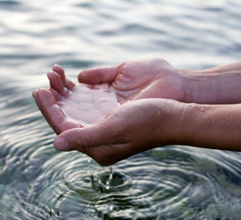
WHAT'S NEXT?: Global demand for fresh water is expected to outpace sustainable supply by 40% in 2030. Global water demand will climb in tandem with population and economic growth. At least two-thirds of the world's population will face 'water stress' by 2025 and the number of people affected by floods could increase by a factor of three by 2100 bring significant risk of unrest and conflict. The UN Security Council will have to declare water a strategic resource of humanity and adopt a resolution to protect water resources and installations. Organizations will be expected to play their part in conserving water.
Last updated: 20 December 2025